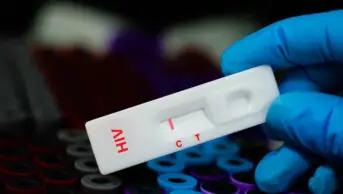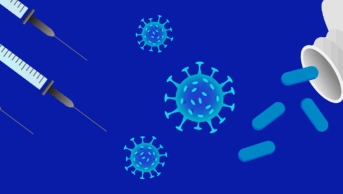
Shutterstock.com
Provision of sexual health and HIV services has become ‘fragmented’ in England since responsibility for commissioning was split across local authorities, clinical commissioning groups (CCGs) and NHS England, a survey published in August by Public Health England has found.
But pharmacies could be used to provide more sexual health services in the future, as commissioners cut their spend on specialist services.
The survey asked local authorities and CCGs what types of services they commissioned from different providers.
The majority of local authorities (95%) responding reported commissioning services from pharmacies. The most frequently commissioned services were emergency hormonal contraception (EHC) (93%), chlamydia screening (73%) and condom distribution (57%). A few local authorities also commissioned testing and treatment for sexually transmitted infections (STIs) (11%), HIV testing (6%), and provision of long acting reversible contraception (LARC). Chlamydia treatment and pregnancy testing commissioned from pharmacies by local authorities were 6% and 5%, respectively.
Local authorities said that they may not be able to maintain current levels of service provision because of government cuts to the public health grant. Many expected to reduce access to specialist services and redirect patients requiring less specialist care to pharmacies and general practice. However, the report pointed out that “reduced capacity in general practice meant that there was a lack of confidence that the provision of services commissioned through GPs would actually be provided (LARC and contraception in particular)”.
Most CCGs are not commissioning any sexual health or HIV services from pharmacies. Over two-fifths (44%) of CCGs said that such commissioning was not relevant to them and more than a quarter (28%) did not respond to this question. Of the few that were commissioning services the most likely was EHC (8%). LARC, other contraception, chlamydia screening, and STI testing and treatment were each commissioned from pharmacies by 4% of CCGs.
PHE’s report concludes that the fragmentation of commissioning and contracting barriers needed to be reduced, and it called for improved data and monitoring of outcomes. Sexual health, reproductive health and HIV commissioning must be explicitly considered within the development of the new funding mechanisms for public health over the next three years, it added.
Ian Green, chief executive of the Terrence Higgins Trust, said the report confirmed that vital sexual health and HIV services were ‘at breaking point’.
“Demand is rising while budgets are shrinking; HIV and sexual health services are reeling from a combination of national government funding cuts to local authorities, a lack of prioritisation by some local councils and lasting damage from the Health and Social Care Act, which led to fragmented and uncoordinated commissioning.
“This cannot go on. We welcome the actions set out in this report, but this action plan does not commit to new funding and does not address the shortfall left by the damaging cuts made to public health budgets.”
A total of 103 of the 152 upper tier local authorities (68%) replied to the survey. The response rate from CCGs was 12%.


